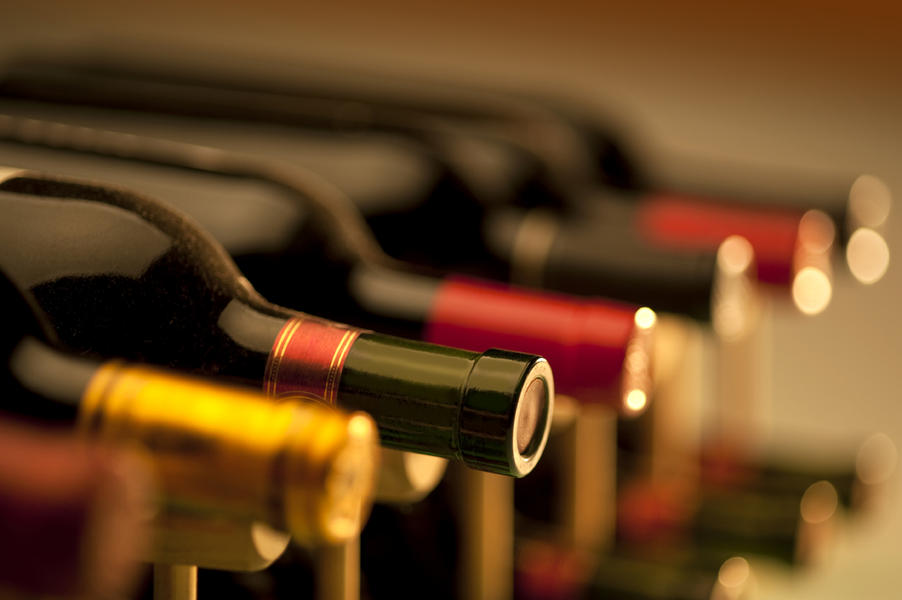Archaeologists discover 4,000-year-old wine cellar in northern Israel


A free daily email with the biggest news stories of the day – and the best features from TheWeek.com
You are now subscribed
Your newsletter sign-up was successful
It's no secret that ancient societies enjoyed wine and drinking games. But a new discovery has taken historians' knowledge of ancient wine culture to new levels — they can now analyze ancient wine's ingredients, thanks to the discovery of a 4,000-year-old wine cellar found in northern Israel.
Archaeologists found clay vessels used to hold wine in a 4,000-year-old cellar at Tel Kabri, a Canaanite palace. The team used a micro-archaeology lab to analyze the wine samples found on ceramic sherds from the cellar. They discovered that the wine cellar had contained "a fine, aromatic vintage," signaling that the wine had been made with royalty in mind, Haaretz reports.
The Tel Kabri palace dates to the Middle Bronze Age and was inhabited for more than 250 years, from roughly 1850 B.C.E. to the 1600s B.C.E., according to Haaretz. However, its inhabitants didn't leave written evidence, so the wine cellar is a massive find for researchers who seek information on the palace's occupants.
The Week
Escape your echo chamber. Get the facts behind the news, plus analysis from multiple perspectives.

Sign up for The Week's Free Newsletters
From our morning news briefing to a weekly Good News Newsletter, get the best of The Week delivered directly to your inbox.
From our morning news briefing to a weekly Good News Newsletter, get the best of The Week delivered directly to your inbox.
When the archaeologists analyzed the wine's ingredients from the residue on the cellar's jars, they found tantaric and syringic acid, which are components of wine, on roughly 40 jars. They also found evidence of cinnamic acid, which would have been used to make storax, a preservative to keep the wine from spoiling.
Assaf Yassur-Landau, the co-director of Tel Kabri and director of the Mediterranean studies department at Haifa University, told Haaretz that the Canaanites had "strict notions" of how royal wine should be made. "It should taste and smell like exotic distant places. It should not only taste good, but it should show that the rulers of Kabri were rich and well connected and had access to these luxury goods from distant lands."
A free daily email with the biggest news stories of the day – and the best features from TheWeek.com
Meghan DeMaria is a staff writer at TheWeek.com. She has previously worked for USA Today and Marie Claire.
-
 Why is the Trump administration talking about ‘Western civilization’?
Why is the Trump administration talking about ‘Western civilization’?Talking Points Rubio says Europe, US bonded by religion and ancestry
-
 Quentin Deranque: a student’s death energizes the French far right
Quentin Deranque: a student’s death energizes the French far rightIN THE SPOTLIGHT Reactions to the violent killing of an ultraconservative activist offer a glimpse at the culture wars roiling France ahead of next year’s elections
-
 Secured vs. unsecured loans: how do they differ and which is better?
Secured vs. unsecured loans: how do they differ and which is better?the explainer They are distinguished by the level of risk and the inclusion of collateral
-
 Nobody seems surprised Wagner's Prigozhin died under suspicious circumstances
Nobody seems surprised Wagner's Prigozhin died under suspicious circumstancesSpeed Read
-
 Western mountain climbers allegedly left Pakistani porter to die on K2
Western mountain climbers allegedly left Pakistani porter to die on K2Speed Read
-
 'Circular saw blades' divide controversial Rio Grande buoys installed by Texas governor
'Circular saw blades' divide controversial Rio Grande buoys installed by Texas governorSpeed Read
-
 Los Angeles city workers stage 1-day walkout over labor conditions
Los Angeles city workers stage 1-day walkout over labor conditionsSpeed Read
-
 Mega Millions jackpot climbs to an estimated $1.55 billion
Mega Millions jackpot climbs to an estimated $1.55 billionSpeed Read
-
 Bangladesh dealing with worst dengue fever outbreak on record
Bangladesh dealing with worst dengue fever outbreak on recordSpeed Read
-
 Glacial outburst flooding in Juneau destroys homes
Glacial outburst flooding in Juneau destroys homesSpeed Read
-
 Scotland seeking 'monster hunters' to search for fabled Loch Ness creature
Scotland seeking 'monster hunters' to search for fabled Loch Ness creatureSpeed Read
